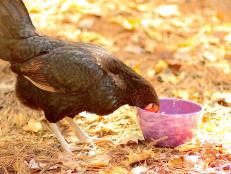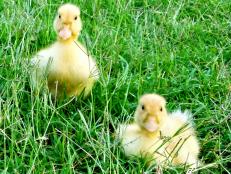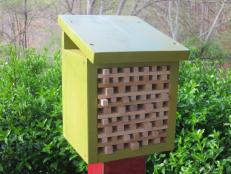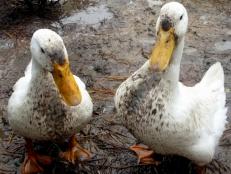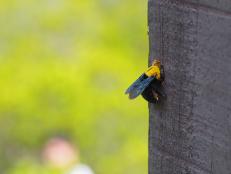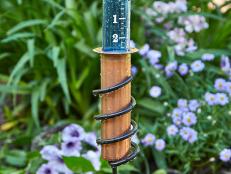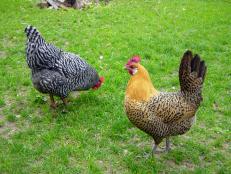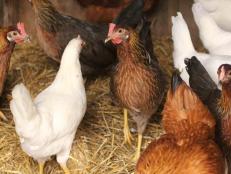Cock-a-Doodle-Who? How to Tell a Rooster From a Hen
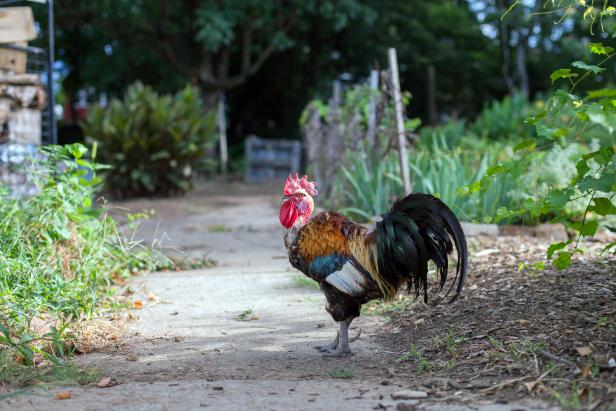
Photo by Jason Travis

At 6 weeks old my chicks’ downy fuzz has been replaced by grown-up feathers. The adorable peeping has given way to a far less charming “bwaaaaak.” They have graduated from “starter feed” (which has a higher protein content) to “grower” feed. In a few short weeks they will be ready to join the rest of the backyard flock and will be laying eggs of their own sometime this fall. Well, not all of them.
Into each hatch, some roosters must fall.
My small flock provides about half a dozen eggs a day. Heaven knows I don’t actually need more eggs. Still, for the backyard coop, keeping roosters isn’t really an option. One rooster in a residential coop is one too many. Even your most accommodating neighbors will change their tune quickly once a rooster starts that full-throated crow at six a.m. So how can we tell a hen from a rooster?
- If the egg has a pointed tip, it’s a rooster.
- Hold them upside down by their feet and the rooster will spring back up quickly.
- A threaded needle held over the bird’s head will swing back and forth over a rooster and in a circular motion over a hen.
There. That wasn’t so hard. Have a great day!
Still here? Alright, so those old wives’ tales don’t actually work. Those are just a few of the rooster divining suggestions I’ve heard over the years. It would be handy if any of these could do the job (that pointy egg one would be particularly convenient for the home hatcher). Any other ideas?
The professionals use a method called “sexing,” in which the anal vent of a day-old chick may be carefully inspected for signs of gender. The window of time to complete this is narrow and, even then, accuracy generally tops out at about ninety percent. This takes a lot of practice. For the home hatcher, the opportunity to log the hours necessary to determine gender in this way, just isn’t there. And to be frank, there are some skills I don’t feel compelled to master.
If you aren’t an old wife or a “sexing” professional, there are a few methods for early detection. In breeds known as sex-link chickens, male and female chicks have markedly different coloring at hatch. Other breeds “feather out” differently, where roosters develop adult feathers more rapidly than hens. Wattle or comb shape or body type can also provide hints. Attentive breeders may use these methods to get ahead of the game.
Cockerels (juvenile roosters) may also reveal themselves through personality after the first few weeks. Often, the bossiest and most aggressive of the brood are the males. Once again, this rule of thumb is no guarantee.
This brings us to my 6-week-olds. At 6 to 8 weeks, the cockerels are going to start crowing. Well, trying to crow. Of my three chicks, one has begun its attempts to greet the day with a feeble shout out. Hello, rooster. A second is showing some other signs of roosterhood, but has yet to speak up. We’ll see.
So is there a conclusive method for differentiating the rooster from the hen? Sure. The one that lays an egg is a hen.






